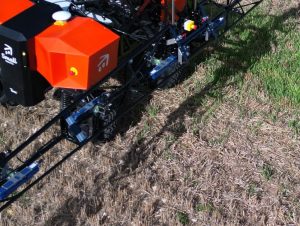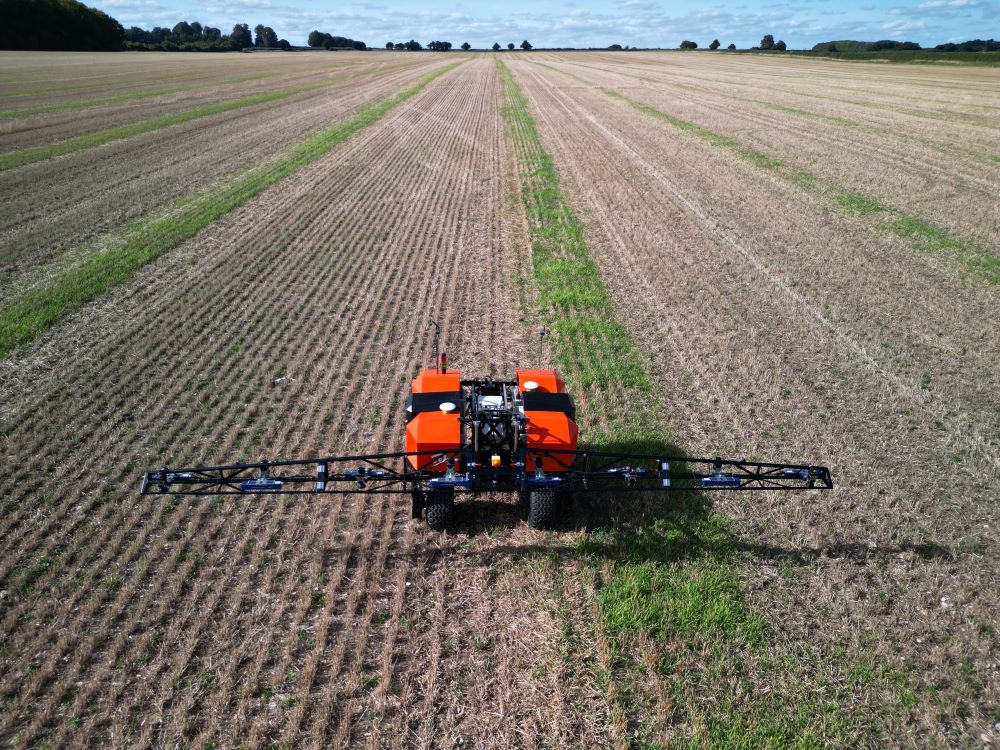Farmers are being called on to help train robots to spot slugs and the damage they cause to arable crops.
The ground-breaking trial, set to start in the spring, will equip the ‘Slug Sleuths’ with special rigs designed to improve the complex machine-learning algorithms used to identify the slimy pests.
Farmers interested in taking part are invited to join a webinar on 10 January at 8:30am.
The trial is part of SLIMERS, a £2.6M Defra-funded project to develop new management strategies to help farmers achieve more sustainable slug control in arable crops.
The new work will run in-parallel with another component of the project which analyses the distribution of slugs in arable fields. This information will help the team to develop more sustainable approaches to the use of pellets by targeting only the patches where the pest gathers.
Farmers are already successfully delivering the field experiments for this investigation and the SLIMERS project is now seeking similar support to investigate slug control using the application of biological agents (nematodes) with an autonomous robot.
“We developed the concept of autonomous slug control through the SlugBot project, funded by Innovate UK,” explains Technical Lead for SLIMERS Dr Jenna Ross, OBE, of Agri-Tech Centre CHAP.

“This work enabled robots to identify slugs and then spot-treat them with advanced alternative biological control methods.
“These new trials will put that proof of concept to the test in real field situations. But we need farmers to use their skill and judgement to train the robot AI.”
Special rigs, equipped with the latest camera technology, have been designed and are currently being built by SLIMERS project partner The Small Robot Co (SRC).
Farmers will use these to mimic a robot moving through the field and direct the rig to the patches where slugs gather to devour the crop.
Thousands of multi-spectral images of slug infestation will be gathered and fed into the machine-learning algorithms that will soon be used to find slugs and treat them without any human intervention, notes Ray King, Lead Mechanical Engineer at SRC.
“Robots learn as they go. The more images we gather, the better they will be at identifying this important pest.”
At the webinar on 10 January, Ray will give an insight into the world-leading technology SRC has developed to identify pests and pathogens in arable fields, and explain how the trial will work.
Dr Kerry McDonald-Howard who has recently joined CHAP, will share some of her expertise on Phasmarhabditis species – parasitic nematodes that feeds on slugs.
“It’s a highly effective natural predator you can spot spray at a low cost to an area where a slug is found,” she notes.

The farmer ‘Slug Sleuths’ recruited to use the rigs to train the AI will be paid to carry out the work and gather the data by the British On-Farm Innovation Network (BOFIN).
“Farmers who know their fields know where slugs gather and where the damage is greatest,” notes BOFIN Founder and Managing Director Tom Allen-Stevens.
“The work on patch treatment of slugs previously funded at Harper Adams University by AHDB and now being developed under SLIMERS has refined this by proving that other slug patches also occur in all fields.
“Targeting all these areas with slug pellets results in commercially viable and environmentally sustainable control. In practice these patches also offer the target areas for the robot to operate in, reducing the area they need to search.
“At the webinar we’ll explain how farmers will be paid to help transfer this knowledge to the robot AI.”
Farmers encouraged to come forward would be those planning to establish a spring cereal in a slug-infested field with a keen understanding of the pest and a determination to harness new technology to control them.
To sign up to the free webinar go to www.slimers.co.uk. You can also be involved in SLIMERS by joining the 160+ volunteer Slug Scouts.
These farmers and gardeners have been sending in slugs to the CHAP laboratory at Rothamsted Research in Hertfordshire to help further train the AI’s slug recognition and identify crop damage caused by the slimy pest.
